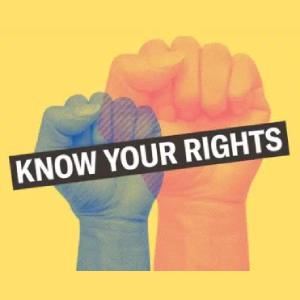Updated February 11, 2025
Discrimination in the Workplace
Discrimination in the workplace is a serious issue that can have a significant impact on an employee’s well-being and career progression. Fortunately, employees who experience discrimination have legal recourse to seek justice and compensation for the harm they have endured. In this article, we will explore what employees should ask for in an employment discrimination settlement. We will discuss the categories protected by anti-discrimination laws, what constitutes employment discrimination, the consequences of discrimination, and how to file a complaint. We will also delve into the process of negotiating a settlement and the types of damages that can be recovered. Let’s dive in.
Categories Federally Protected by Anti-Discrimination Laws
The first step in understanding what to ask for in an employment discrimination settlement is to be aware of the categories protected by anti-discrimination laws. In the United States, there are federal and state laws that prohibit discrimination based on various characteristics. The protected categories may vary depending on the jurisdiction, but they generally include:
- Race
- National origin
- Religion
- Age
- Mental or physical disabilities
- Sex and gender
- Sexual orientation
- Gender identity and expression
- Marital status
- Pregnancy
- Military or veteran status
It is important to note that these categories may differ slightly depending on the specific laws in your jurisdiction. Therefore, it is crucial to consult the relevant legislation and seek legal advice to determine the specific protections available to you.
Understanding Employment Discrimination
Employment discrimination refers to the unfair or unequal treatment of an individual in the workplace based on one or more of the protected categories. Discrimination can occur in various forms, including hiring, termination, denial of equal pay, denial of promotions or benefits, and harassment. It is essential to recognize that discrimination can take both overt and subtle forms, and it is not always easy to identify.
To establish a claim of employment discrimination, an employee must demonstrate that they belong to a protected category, that they have suffered adverse employment actions, and that there is a causal connection between their protected status and the adverse actions. It is important to gather evidence, such as documents, witness testimonies, and any other relevant information, to support your claim of discrimination.
Consequences of Employment Discrimination
Employment discrimination can have severe consequences for the victims. When seeking a discrimination settlement, it is crucial to understand the potential remedies and damages that may be awarded. Some of the consequences that may result from employment discrimination include:
Compensation for past or future lost earnings: Victims of discrimination may be entitled to financial compensation for the wages and benefits they would have earned if not for the discrimination.
Reinstatement as an employee: In some cases, a victim of discrimination may request to be reinstated to their former position or a comparable position within the organization.
Promotion: If the discrimination resulted in the denial of a promotion, the victim may seek a promotion as part of the settlement.
Policy changes and additional training: An organization may be required to make policy changes and provide additional training to prevent future discrimination.
Accommodations: Victims of discrimination based on disabilities or medical conditions may request reasonable accommodations to enable them to perform their job duties effectively.
Emotional distress damages: Discrimination can cause significant emotional distress, and victims may be entitled to compensation for the psychological harm they have suffered.
Punitive damages: In cases where the discrimination was particularly egregious, intentional, or accompanied by oppression, fraud, or malice, punitive damages may be awarded to punish the perpetrator.
Reimbursement of expenses: Victims of discrimination may be entitled to reimbursement for court fees, attorney’s fees, and other out-of-pocket expenses incurred as a result of the discrimination.
It is important to note that the specific remedies and damages available may vary depending on the jurisdiction and the specific facts of each case. Consulting with an experienced employment discrimination attorney can help you understand your rights and the potential outcomes of your case.
Filing an Employment Discrimination Complaint
If you have experienced employment discrimination and wish to settle your claim, you must know the proper procedure for filing a complaint. The process may differ depending on the jurisdiction, but generally, there are two main avenues for filing a complaint: through an administrative agency or directly through the court system.
Filing with an Administrative Agency
In the United States, the Equal Employment Opportunity Commission (EEOC) is the federal agency responsible for enforcing federal laws against employment discrimination. To file a complaint with the EEOC, you must generally follow these steps:
Contact the EEOC: Begin by contacting the nearest EEOC office or visiting their website to initiate the complaint process.
Provide information: You will need to provide details about the discrimination you have experienced, including the nature of the discrimination, the individuals or entities involved, and any supporting evidence you may have.
Investigation: The EEOC will conduct an investigation into your complaint to determine if there is reasonable cause to believe that discrimination has occurred.
Mediation: In some cases, the EEOC may offer mediation as an option to resolve the dispute. Mediation is a voluntary process in which a neutral third party helps facilitate a settlement between the parties involved.
Issuance of a right-to-sue letter: If the EEOC investigation does not result in a resolution, or if the EEOC determines that there is insufficient evidence of discrimination, they will issue a right-to-sue letter. This letter gives you permission to file a lawsuit in court.
It is important to note that there are strict deadlines for filing a complaint with the EEOC. Generally, you must file within 180 days from the date of the alleged discrimination. However, this deadline may be extended to 300 days if your state has its own fair employment practices agency.
Filing a Lawsuit
If you choose to pursue your claim through the court system, you will need to file a lawsuit against the individuals or entities responsible for the discrimination. It is advisable to consult with an employment discrimination attorney before proceeding with a lawsuit, as the process can be complex and time-consuming.
To file a lawsuit, you will generally need to follow these steps:
Consult with an attorney: An experienced employment discrimination attorney can guide you through the process and help you build a strong case.
Draft a complaint: The complaint is a legal document that outlines the allegations of discrimination and the relief sought. Your attorney will assist you in preparing the complaint.
Serve the complaint: Once the complaint is filed with the court, it must be served on the defendants. This means delivering a copy of the complaint to each defendant in accordance with the court’s rules.
Discovery: The discovery process allows both parties to gather evidence and information relevant to the case. This may involve depositions, interrogatories, requests for documents, and other legal procedures.
Negotiation and settlement: Throughout the litigation process, there may be opportunities for negotiation and settlement discussions. Your attorney will represent your interests and help you evaluate settlement offers.
Trial: If a settlement cannot be reached, the case will proceed to trial. At trial, both sides will present their evidence and arguments to a judge or jury, who will then determine the outcome of the case.
Judgment and remedies: If the court finds in your favor, it may award you damages and other remedies, such as reinstatement or policy changes.
It is important to note that the litigation process can be time-consuming and costly. However, filing a lawsuit may be necessary to seek full compensation for the harm you have suffered and to hold the responsible parties accountable.
Negotiating an Employment Discrimination Settlement
Negotiating a settlement is often a preferred alternative to litigation, as it allows both parties to reach a resolution without the need for a lengthy and expensive court process. When engaging in settlement negotiations for an employment discrimination claim, consider the following tips:
Understand your case: Before entering into negotiations, thoroughly assess the strength of your case. Consider the evidence, potential defenses your employer may raise, and the estimated value of your claim.
Establish your “bottom line”: Determine the minimum amount you are willing to accept as a settlement. This “bottom line” should take into account the potential risks and costs associated with proceeding to trial.
Demonstrate the value of your claim: Clearly articulate the merits of your case to your employer. Provide evidence and legal arguments supporting your claim of discrimination and the damages you are seeking.
Be prepared to make the first offer: Making the first offer can set the tone for the negotiation and allow you to anchor the discussion around a favorable starting point. Base your offer on the estimated value of your claim, but be open to negotiation.
Consider non-monetary terms: In addition to financial compensation, think about other non-monetary remedies that may be important to you, such as an apology, a good reference, or changes to company policies.
Understand your employer’s perspective: Put yourself in your employer’s shoes and consider their interests and concerns. Highlight the potential benefits of settling, such as avoiding negative publicity or saving on legal costs.
Seek legal advice: Consult with an experienced employment discrimination attorney throughout the negotiation process. They can provide valuable guidance, help you evaluate settlement offers, and ensure that your rights are protected.
Remember, negotiation is a give-and-take process, and compromises may be necessary to reach a mutually agreeable settlement. Be prepared to engage in constructive dialogue with your employer and be open to creative solutions that address your concerns.
Types of Damages in an Employment Discrimination Settlement
When negotiating an employment discrimination settlement, it is crucial to understand the types of damages that may be available to you. Damages are the monetary compensation awarded to the victim of discrimination to compensate for the harm they have suffered. Here are the three main types of damages that can be recovered in an employment discrimination case:
Economic damages: Economic damages compensate the victim for financial losses directly resulting from the discrimination. This may include lost wages, benefits, and other monetary losses. Calculating economic damages can be complex and may require the assistance of an expert witness.
Non-economic damages: Non-economic damages are intended to compensate the victim for intangible losses, such as emotional distress, pain and suffering, and damage to reputation. These damages are subjective and can vary significantly depending on the specific circumstances of the case.
Punitive damages: Punitive damages are awarded in cases where the employer’s conduct is particularly egregious or malicious. These damages are intended to punish the employer for their actions and deter future similar conduct. Not all cases will qualify for punitive damages, as they require a higher standard of proof.
In addition to these damages, some employment discrimination cases may also involve reimbursement of attorney’s fees, court costs, and other expenses incurred during the legal process. It is essential to discuss the potential damages available in your specific case with your attorney to ensure that you are seeking appropriate compensation.
Conclusion
Settling an employment discrimination claim can provide victims with a sense of justice and compensation for the harm they have suffered. Understanding the categories protected by anti-discrimination laws, the elements of employment discrimination, and the potential consequences of discrimination is crucial when negotiating a settlement. By following the proper procedures for filing a complaint, engaging in effective negotiation strategies, and understanding the types of damages available, victims of discrimination can seek fair and just resolutions to their claims. If you believe you have experienced employment discrimination, consult with an experienced employment discrimination attorney to explore your legal options and ensure your rights are protected.
Consulting a Los Angeles discrimination attorney will provide you with the necessary guidance and support to navigate the legal process effectively. If you’ve been denied your rights as an employee by your employer, time is of the essence, please seek legal advice promptly to maximize your chances of a successful outcome.
Call Setyan Law at (213)-618-3655 for a consultation.






